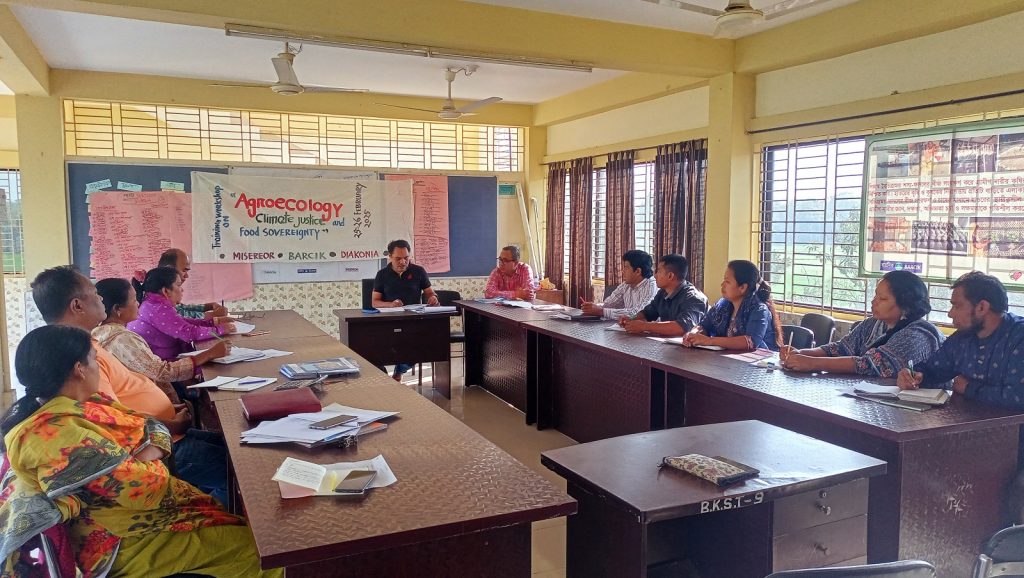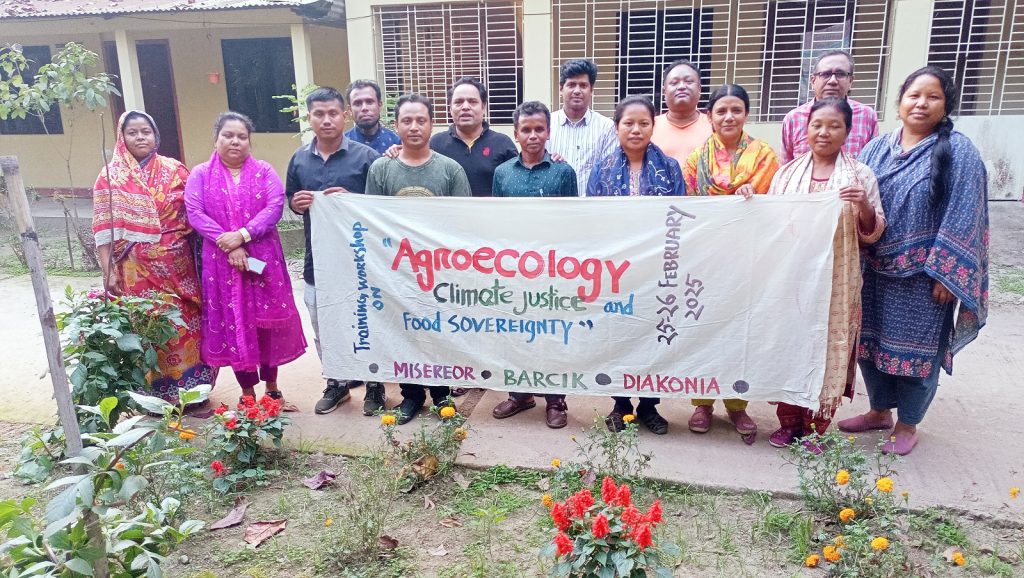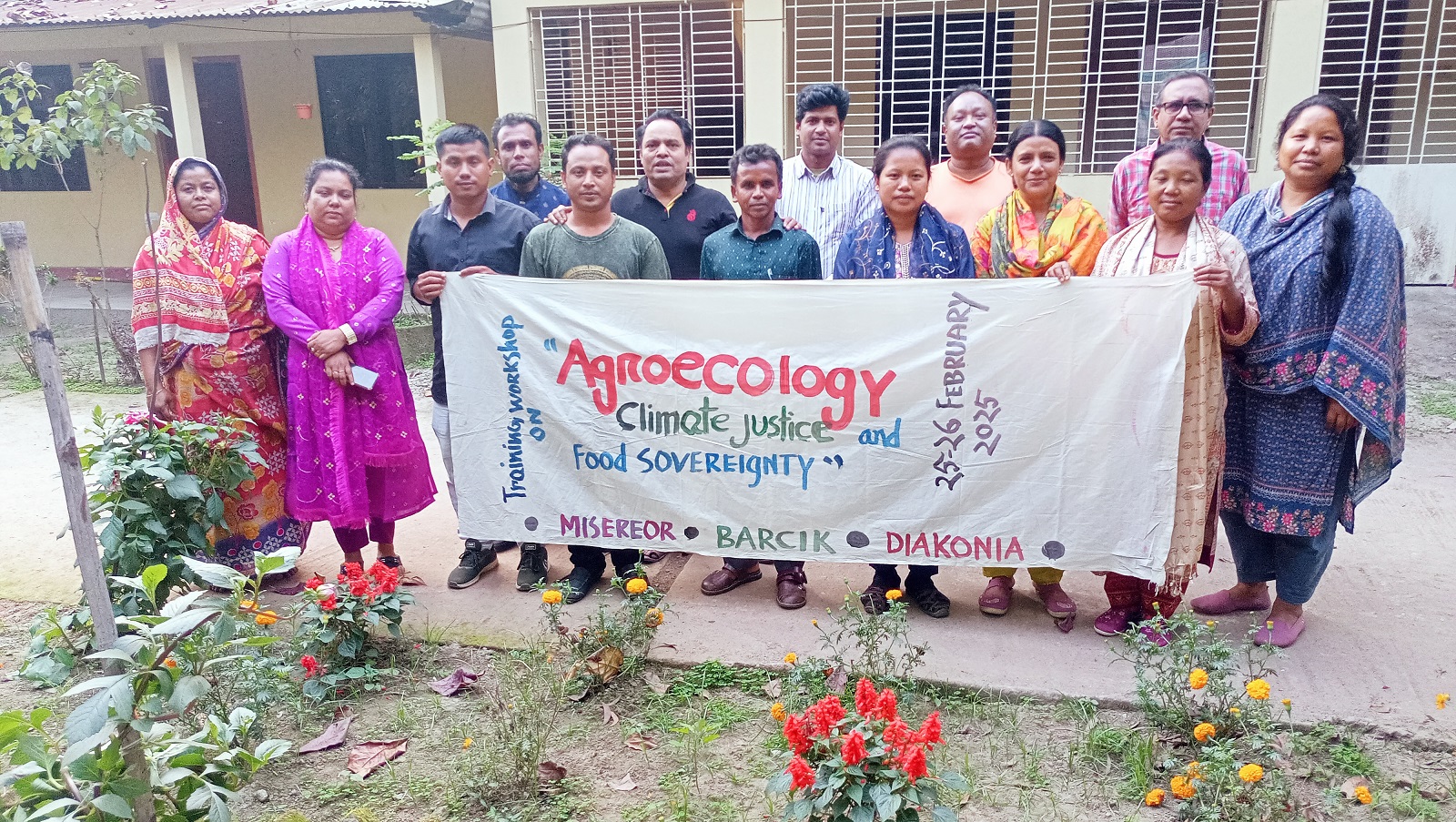By Ohidur Rahman, from Netrakona
A training workshop on Agroecology, Climate Justice, and Food Sovereignty was recently held at the Netrokona Resource Center, Rameshwarpur, organized by BARCIK. The workshop was attended by BARCIK staff and field facilitators from Madan, Atpara, Netrokona Sadar, Kalmakanda, Kendua, and Tarakanda.
The training was facilitated by Syed Ali Biswas, Director of the Biodiversity and Food Security Department at BARCIK while opening speech was delivered by Ohidur Rahman, Regional Coordinator of BARCIK.

During the workshop, each participant shared insights about the agroecology, and environmental conditions of their respective areas, covering topics such as crop diversity, rivers, wetlands, reservoirs, trees, fish, livestock, soil, water, air, and future plans.
Addressing the participants Syed Ali Biswas emphasized on the importance of integrating different activities in the field to create a well-coordinated approach. He discussed on the challenges faced in the previous year, successes achieved, the effectiveness of previous initiatives, and areas where improvements were needed. He urged Netrakona BARCIK staffs to plan for the upcoming year by considering these four aspects, challenges faced in the previous year, successes achieved, effectiveness of the previous actions and areas for improvement. He also highlighted the interconnection between humans, nature, soil, water, air, and climate, advocating for strengthening Green Coalitionto achieve sustainable development.
However, facilitating the discussion Syed Ali Biswas stated thatagroecology is a holistic integration of science, policy, philosophy, practice, and social movements. It helps to understand the framework necessary for transforming the food system into a sustainable model. Agroecology incorporates social and political dimensions to ensure regional food governance, ultimately strengthening the movement for food sovereignty.

There was an open discussion among the participants and the key themes that they covered in that discussions include: protection of soil, water, and air, conservation of farmers’ local seed resources, promotion of agroecological practices, expansion of organic farming, reducing dependence on groundwater, increasing crop diversity, creating awareness among farmers, excavation and preservation of water bodies, strengthening social movements through Green Coalition and Ensuring climate justice
It is to mention that agroecology ensures interdependence by producing food without harming soil, water, and air. It supports the conservation of farmers’ native seed resources while protecting food culture, economic and political rights of farmers and the ecosystem.

